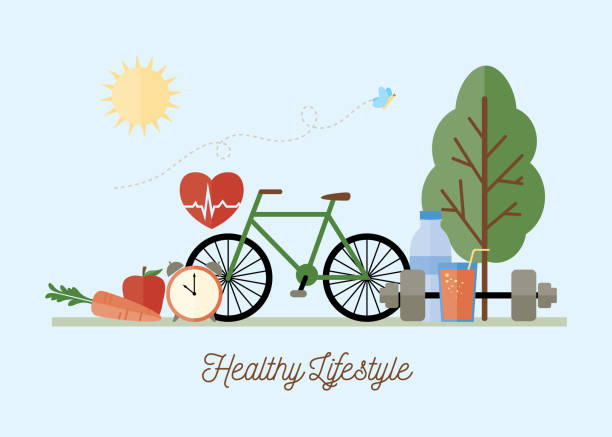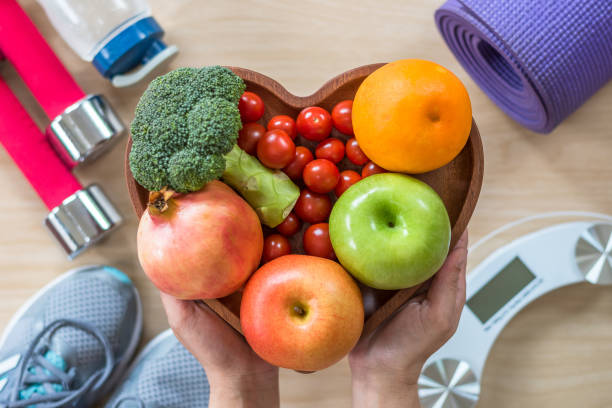
Healthy Eating Lifestyle
To truly understand what it means to Healthy Eating Lifestyle or “eat healthy,” adhere to a “balanced diet,” and make wise nutrition choices, it’s important to recognize that everyone’s appetites, preferences, health goals, nutritional requirements, and lifestyles vary significantly. Furthermore, an individual’s needs inevitably change over time, even from day to day. Therefore, to initiate and maintain a diet of nourishing foods that support brain function and provide body energy, the approach must be highly personalized, gradual, adaptable, and open-minded.
Personally and professionally, I define healthy eating as achieving a harmonious balance of consuming nourishing foods that promote both physical and psychological well-being,” explains Jaclyn London, RDN, a registered dietitian, consultant, and author of Dressing on the Side (and Other Diet Myths Debunked): 11 Science-Based Ways to Eat More, Stress Less, and Feel Great about Your Body. In contemporary times, the term “balance” may seem overused, but at its core, it encapsulates the essence of how your eating habits should ideally function: fostering a sense of consuming appropriate portions of food that leave you feeling satisfied, not overstuffed.

People frequently establish unachievable, unsustainable, or detrimental objectives to adopt healthier eating habits and make rapid strides in their health, which is impractical! “From my perspective, prioritizing personal health and well-being is not a fixed destination, but rather an ongoing journey that is certain to evolve,” London emphasizes. “This implies that what may be effective for you today, this week or this year may not be sustainable [next year]—and that’s perfectly acceptable!
To cultivate healthy eating habits and comprehend the principles of nourishing your body through food, London offers practical, adaptable, and straightforward advice for establishing and maintaining a nutritious diet for long-term wellness.
Consume breakfast daily
When you find yourself feeling hungry and low on energy by mid-morning, it’s a clear sign to establish a routine of eating breakfast. Skipping breakfast to “save up for later” often leads to energy slumps, cravings, irritability, and making less-than-ideal food choices for the rest of the day.
According to London, incorporating a nutritious and uncomplicated breakfast made up of a “combination of sustaining protein, fiber, and beneficial fats” is significantly more beneficial than forgoing this meal. Appetizing options include eggs (scrambled, in omelets, or in sandwiches), plain yogurt, oatmeal or chia seed puddings, whole wheat toast, nut butter, fruits and vegetables (including veggies!), and even leftover savory dishes.
Conduct a beverage inventory assessment
Drinks can be a surreptitious source of additional sugars, so it is important to examine the beverages consumed throughout the day and identify opportunities for feasible adjustments. “Thoroughly assess the beverages you typically consume each day. Substituting those with added sugar for unsweetened alternatives can significantly enhance your overall health and well-being.”
Opt for a combination of protein and fiber in each meal whenever possible.
“Studies indicate that incorporating these two key nutrients into your meals can contribute to a sense of fullness, keeping hunger at bay for longer,” noted London.
She suggests including fiber-rich foods such as “vegetables, fruits, 100% whole grains, legumes, nuts, and seeds (which also offer a protein boost!).”
Furthermore, she advises incorporating these lean protein sources: “eggs, seafood, poultry, lean cuts of beef, and unsweetened dairy products (as well as the aforementioned plant-based sources—nuts, whole grains, seeds, and legumes).”
Maintain a consistent eating schedule and avoid skipping meals
Ensuring you eat regular meals and snacks is essential for managing your mood, appetite, and overall eating patterns. When you allow yourself to become extremely hungry, it can lead to irritability and difficulty in controlling your food intake. Instead of reaching the point of intense hunger, which can be uncomfortable and negatively impact your productivity, it’s important to respond to natural hunger signals and nourish yourself consistently throughout the day. Aim to consume a well-balanced snack or meal every three to four hours to sustain your energy levels. Additionally, incorporating a mix of protein, fiber, and healthy fats into each meal or snack can enhance satisfaction.
Add a serving of fruit or vegetables with every meal or snack.
What if we framed the objective of “eating healthier” with a mindset of addition rather than subtraction and restriction? Focus less on what to avoid or cut back on, and instead emphasize adding more of the good stuff.
“This will allow you to benefit from the fiber in produce (remember: juicing eliminates this!), as well as water and antioxidants. Additionally, it will help you consume fewer less-nutritious items that you might have otherwise included in your meal or snack.”
Consuming fiber from plant sources, such as vibrant fruits and vegetables, aids in slowing down the digestive process. This contributes to maintaining stable blood sugar levels and promoting a prolonged feeling of satisfaction in your stomach.
“Commence with modest steps and embrace simplicity. Incorporate elements into your daily routine as per your current comfort level (knowing you can always progress from there),” she advises. Additionally, if there’s something you truly dislike, there’s no need to force it. If kale salads are abhorrent to you, accept it and move forward.
Listen to Your Body and Respond Mindfully
According to London, it’s essential to consider your body’s physiological needs before taking action. Instead of automatically reaching for food or eating out of habit or boredom, it’s helpful to adopt a more mindful and thoughtful approach to assess your current needs.
Firstly, consider if you might be thirsty. Dehydration can sometimes manifest as unexpected feelings of hunger, so it’s important to ensure you’re adequately hydrated. Try consuming 16 ounces of water or another unsweetened beverage, and if you still feel hungry after a few minutes, then you can eat.

To address feelings of intense hunger and low energy, strive to consume regular meals every three to four hours, opting for snacks that provide a blend of protein and fiber. This strategy will help maintain stable hunger and energy levels throughout the day, advises London.
Alternatively, if you are in need of rest, consider incorporating a small amount of caffeine, spending 15 minutes outdoors, or taking a nap if it is feasible. London suggests adhering to the general caffeine recommendation of no more than 400 mg per day, especially if you are sensitive to it. This amount equates to approximately a Venti (20 ounces) serving at Starbucks. If it is nighttime, prioritize getting adequate sleep to rejuvenate.
Avoid obsessing over calorie counting and restriction.
Calories do not accurately reflect the healthfulness or nutritional value of a food. Many nourishing, satisfying, and nutrient-dense foods have higher calorie content—along with beneficial fats, fiber, protein, vitamins, and minerals (such as nuts!). “Individuals often significantly reduce their overall calorie intake without incorporating more nutrient-packed foods,” London explains. “This leads them to constantly scrutinize Nutrition Facts labels and menus, ultimately feeling demoralized and constantly hungry.”
Avoid detoxes and cleanses—they are not effective!
“If your gut, liver, and kidneys are working properly, there’s no need for detoxing. Your body naturally detoxifies itself constantly,” says London.
Consider avoiding 30-day food challenges for now.
This competitive, abrupt change format may provide genuine motivation for a small subset of individuals, but those seeking long-term lifestyle improvements for their overall well-being should reconsider. “How does attempting something extreme for 30 days help us establish new habits that promote better health and wellness in the long run?” she asks. “This can initiate a cycle of weight fluctuation, leading to significant body weight changes over time, which has serious implications, including metabolic irregularities, cardiovascular disease, diabetes, and mental health issues such as depression and anxiety.”





